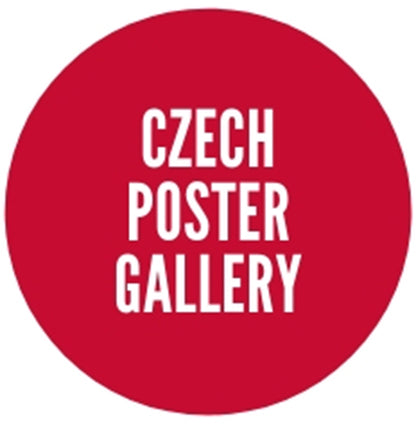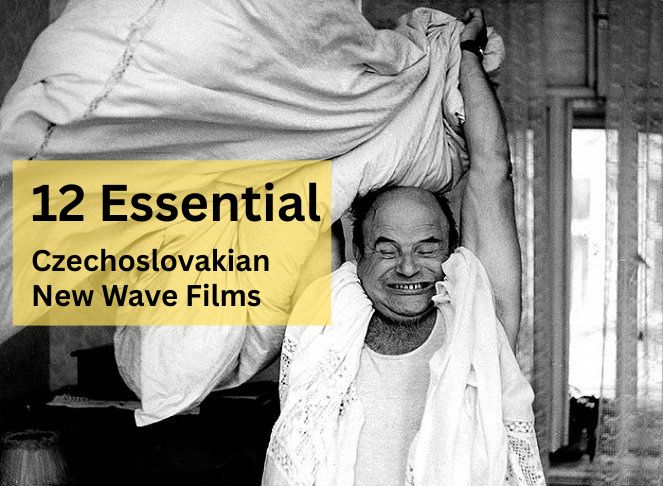This list of 12 essential Czechoslovak New Wave films is not meant to be comprehensive - there are many more jewels still waiting to be discovered. Rather, it’s a carefully chosen mix of popular masterpieces and less obvious treasures, shaped not only by our own passion but also by the reactions of audiences. Over the years, we’ve screened these classics with international viewers - mostly at the legendary Subtitles Café in London - and witnessed firsthand how their humor, tension, and beauty spark laughter, discussion, and reflection. The choices here reflect both our favorites and the voices of those who experienced them with us, proving that these films remain alive, defiant, and utterly unique.
12. Valerie and Her Week of Wonders (Valerie a týden divů, 1970, dir. Jaromil Jireš)

Valerie and Her Week of Wonders is a dreamlike fairy tale where innocence slips into danger. Valerie drifts through a surreal realm of vampiric priests, blood-soaked roses, and cryptic rituals, where the line between childhood and womanhood dissolves. Along the way, she encounters mysterious voyagers, fetishistic objects, and dreamlike orgies, all handled with a delicate, almost ethereal touch - well, mostly, or very lightly. The film flirts with the edge of eroticism and fantasy, and even today, it might be considered daringly provocative. One unforgettable sequence shows her wandering through a candlelit dreamscape, caught between temptation and terror.
🏆 Restored by the Czech National Film Archive, now celebrated as one of cinema’s most haunting surrealist works.
🖼 Original movie posters for Valerie and Her Week of Wonders
📀 DVD for Valerie and Her Week of Wonders with english subtitles
11. Ecce Homo Homolka (1969, dir. Jaroslav Papoušek)

A warm and witty look at everyday family life in Czechoslovakia, following three generations living under one roof. The film opens with a hilarious, unforgettable scene: people relaxing in the forest suddenly bolt in panic when someone screams for help - a moment that audiences consistently loved, setting the tone for a comedy full of gentle satire, human foibles, and charming absurdity.
📀 DVD for Ecce Homo Homolka with subtitles
10. Larks on a String (Skřivánci na niti, 1969, dir. Jiří Menzel)

In a scrapyard turned labor camp, political prisoners and “undesirables” find humor and tenderness in the bleakest conditions. A famous moment shows lovers exchanging glances across piles of rusted metal, finding warmth while their guards look away.
🏆 Banned for 20 years; awarded the Golden Bear at Berlin (1990) after its rediscovery.
🖼 Original Czech movie poster for Larks on a String
9. The Shop on Main Street (Obchod na korze, 1965, dir. Ján Kadár & Elmar Klos)

A humble carpenter becomes the reluctant “Aryan controller” of a Jewish widow’s shop. What begins as awkward comedy shifts into devastating tragedy, with one quiet scene -her kindly offering him biscuits - standing as a symbol of human dignity amid cruelty.
🏆 Won the Academy Award for Best Foreign Language Film (1966).
📀 DVD for The Shop on Main Street with subtitles
8. The Party and the Guests (O slavnosti a hostech, 1966, dir. Jan Němec)

What starts as a carefree picnic twists into a sinister allegory of control. Guests are herded, seats assigned, and obedience enforced with eerie politeness. The film’s quiet menace builds until laughter itself feels dangerous.
🚫 Declared “banned forever” by authorities; today it is a landmark in political allegory on film.
📀 DVD for The Party and the Guests
7. The Cremator (Spalovač mrtvol, 1969, dir. Juraj Herz)

The Cremator is a black comedy that dissolves into horror. A crematorium manager’s obsession with “cleansing” becomes a chilling embrace of fascism. Shot with distorted lenses, the infamous scene of him caressing coffins while whispering about purity remains deeply unsettling.
🎥 Shot with distorted lenses, haunting shadows, and surreal camera angles, the film creates a nightmarish atmosphere where reality and madness intertwine. Its inventive visual style and dark humor make it one of the most unsettling and original psychological horrors of European cinema.
🖼 Original Czech movie poster for Cremator
📀 DVD for The Cremator with English subtitles
6. When the Cat Comes (Až přijde kocour, 1963, dir. Vojtěch Jasný)

A magical cat wearing sunglasses exposes hidden truths: lovers glow red, liars turn yellow, hypocrites blue. In a vibrant town-square scene, children delight as adults panic at being revealed. A playful fable of fantasy that doubles as social satire.
🏆 Won a Special Jury Prize at Cannes (1963).
🖼 Original movie posters for When The Cat Comes (Also known as Cassandra Cat)
📀 DVD
5. The Firemen’s Ball (Hoří, má panenko, 1967, dir. Miloš Forman)

A celebration meant to honor a retiring fire chief unravels into complete farce: stolen raffle prizes, a botched beauty contest, and firemen helpless at an actual fire. Beneath the comedy lies a sharp portrait of bureaucratic collapse. This was by far our most controversial screening - while European audiences laughed uproariously, many Americans in the room could not grasp why we considered it a comedy and insisted it was a social drama, highlighting cultural differences in humor and perception.
🏆 Nominated for the Academy Award for Best Foreign Language Film (1969).
🖼 Original movie poster for Milos Forman's Firemen's Ball
📀 DVD for Firemen's Ball with subtitles
4. Closely Watched Trains (Ostře sledované vlaky, 1966, dir. Jiří Menzel)

A shy railway apprentice struggles with romance and clumsy seductions while war thunders past on trains. The film’s gentle humor culminates in a tragic act of courage, where a boy’s coming of age collides with the brutality of occupation. One of our favorite scenes shows playfully stamping a girl’s bottom with official Reich train stamps, a moment that is at once erotic, humorous, and provocative, capturing the awkward thrill of forbidden desire amid the oppressive wartime backdrop.
🏆 Won the Academy Award for Best Foreign Language Film (1968).
🖼 Original movie poster for Closely Watched Trains from Argentina
📀 DVD for Closely Watched Trains
3. Daisies (Sedmikrásky, 1966, dir. Věra Chytilová)

Vera Chytilova's 1966 classic DAISIES is a wild, anarchic celebration of rebellion, following two young women who decide that the world is spoiled, so they will be too. Bursting with playful chaos, surreal humor, and feminist edge, the film shocked the authorities and was banned for a time. Our audiences were stunned by its bold, modern visuals, which look strikingly fresh and cool even today, proving its lasting influence and timeless energy.
🚫 Briefly banned for “wasting food”; later reclaimed as one of cinema’s great avant-garde achievements.
🖼 Original movie posters for Daisies
📀 DVD
2. The Ear (Ucho, 1970, dir. Karel Kachyňa)

A government official and his wife return from a party to a house thick with paranoia -power cuts, missing friends, whispers of betrayal. Over one long night, their marriage becomes a mirror of political fear. A suffocating sense of surveillance makes even silence terrifying. The incredible performances by Radoslav Brzobohatý and Jiřina Bohdalová give every tense moment a haunting realism that literally sends shivers down your spine. After the film ended, there was always a chilling silence lasting several seconds that you could practically cut through, a testament to its raw emotional power.
🚫 Banned until 1990; now praised as one of the sharpest portraits of life under constant suspicion.
🖼 Original movie poster for THE EAR
📀 DVD
1. Marketa Lazarová (1967, dir. František Vláčil)

A medieval epic that feels carved from ice and stone. Clans clash in snowy landscapes, faith collides with brutality, and Marketa herself is torn between religious devotion and survival. Among its many unforgettable moments is the eerie scene of wolves slowly approaching through the snow, a primal image that blurs the line between nature, myth, and fate. Every frame - whether a brutal ambush or a whispered prayer - is both violent and poetic.
🏆 Repeatedly voted the greatest Czech film ever made by critics (1998, 2012, 2022).
🖼 Original movie poster for Marketa Lazarova
📀 DVD
The Czechoslovak New Wave of the 1960s and early 1970s emerged under the shadow of an oppressive communist regime (though many were created during moments of hope of Prague Spring), a period of strict censorship, political paranoia, and bizarre social rules. Filmmakers of the era used wit, surrealism, and audacious storytelling to expose the absurdities and cruelties of their world. Many of these films were banned or heavily censored, yet they survived, whispering truths through allegory, satire, and poetic imagery.
Watching these films now, in times that often feel just as surreal and fraught, their rebellion, humor, and insight resonate more than ever. They remind us that art can challenge authority, provoke thought, and find freedom even in the strangest and most constrained circumstances.
The Czechoslovak New Wave was more than a film movement - it was a daring act of cultural rebellion. Born under oppressive regimes and sometimes banned, these films challenged authority through humor, allegory, and poetic vision. Today, in equally strange and unpredictable times, their daring, insight, and beauty continue to resonate, proving that cinema can be both timeless and urgent.

Available in our shop: Czechoslovak New Wave by Peter Hames
Dive into the vibrant world of 1960s–70s Czechoslovak cinema! Peter Hames explores the inventive, rebellious, and visually stunning films of the New Wave, from Daisies to Closely Watched Trains. Packed with insights, gorgeous stills, and behind-the-scenes stories, this book is a must-have for cinephiles and collectors alike.

